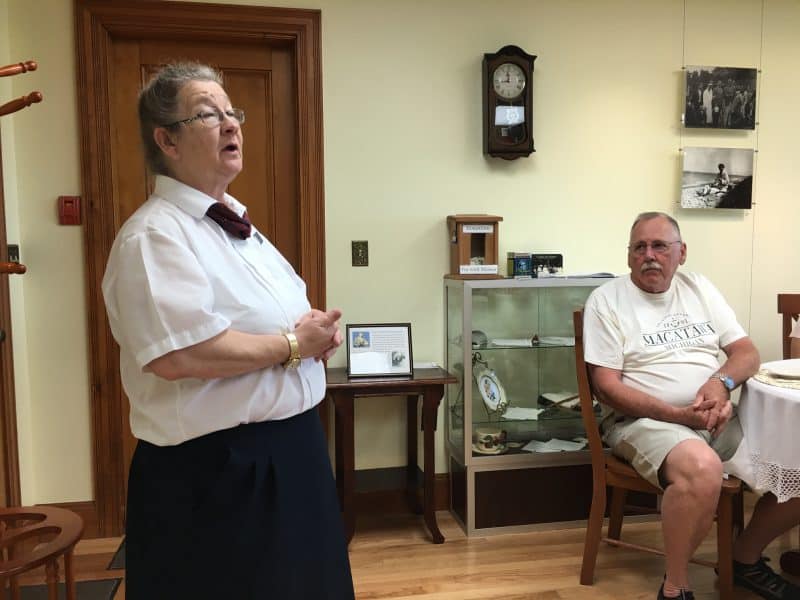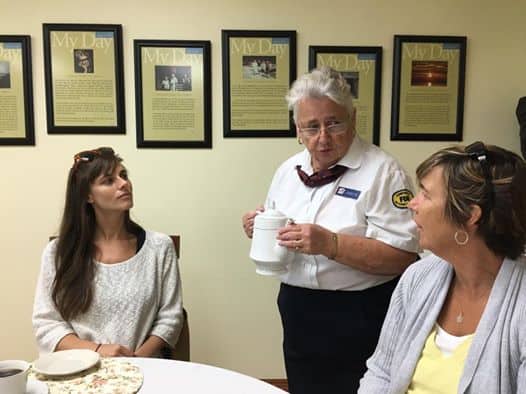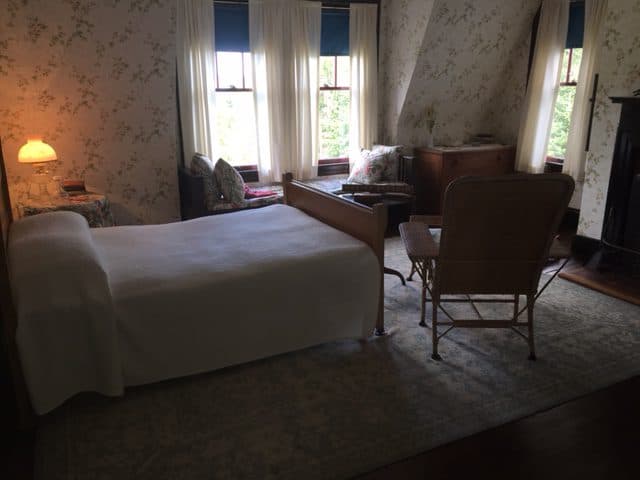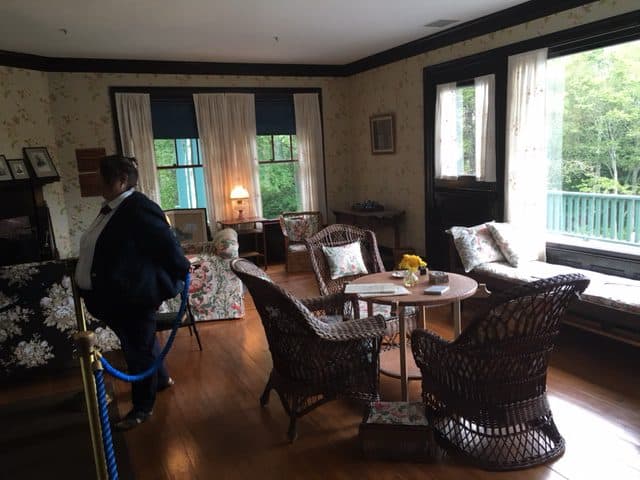Eleanor Roosevelt’s Remarkable Life Illuminated Over Tea

We started our morning early in Bar Harbor because we had a date for tea….tea with two lovely women, Carolyn Newman and Debbie Mitchell, who work as docents at the Roosevelt Campobello International Park in New Brunswick, Canada.
Eleanor Roosevelt was an American icon who earned her place in history by a lifetime of selflessness, service and truly remarkable bravery. She stood up to bigots, to segregation, and always cared about other people and the downtrodden.
Both Debbie and Carolyn have been sharing intimate stories about Eleanor’s life on the island at these popular teas, twice daily since 2011. There is always a line, and the twenty people who enjoy the orange pekoe tea and ginger cookies come away with an emotional and heartfelt understanding of what Eleanor meant to the world.

We learned a lot about Eleanor this morning when we visited Campobello, her husband’s family’s vacation getaway, which Eleanor first visited in 1903.
Invited by her future husband to visit his family, she fell in love with him and with the rugged coastline and salt of the earth people who lived on this island. It was the place Eleanor felt the most comfortable, she said, and when she and FDR finally bought a cottage of their own, she reveled in being able to re-arrange the furniture any way she wanted.

That’s because the New York City townhouse that was gifted to her and her husband Franklin Roosevelt upon their wedding came already furnished, with doors that opened to his mother Sarah’s adjacent house–on all three floors!
Eleanor never went to college, but she spoke four languages. She read all of the books in her parent’s library and had to beg her parents to let her return to boarding school in England. It was there, she said, she felt the most happy as a youth, getting to travel around Europe and learning about the big world outside of New York City.
When her parents got ready to present her as a debutante to society, what she really wanted to do was to work in a soup kitchen and help people, she wasn’t interested in climbing the ladder.

Debbie and Carolyn took turns telling stories to a captivated audience of 22, about how FDR contracted polio in one of the upstairs bedrooms of the Red Cottage, with 32 rooms, and how after that he only returned to the island three more times. Eleanor, they said, loved to knit and especially on the beach and even during UN hearings.
Eleanor visited hospitals around the world and took down the addresses of the injured servicemen, diligently writing letters to parents and relatives telling them how their men were doing. She went down into coal mines, and reported back to her husband, who relied on her as his trusted confidant, to find out what was really going on.
But the most impressive thing that Debbie shared was how much Eleanor cared about people. Sure, she was a woman who had lots of money, but she still wore Sears and Roebuck dresses and to her, it was making people feel special that counted. She earned the love and respect of the islanders of Campobello and when the house next door became available, the owners sold it to the Roosevelts for just $5000. They truly wanted them there.
While Eleanor’s cruel relatives told her she was not pretty, and too tall, her reaction was to shun the camera, she rarely looked right into the lens. She was too busy thinking of what she could do for others.
As a child, she was with her parents on an ocean liner when the ship had to be evacuated, and she was dropped into the arms of her father from high up on deck. She faced that fear of ships and the ocean like she faced down bigots–with a steely determination and a hard fought effort.
She insisted that during her press conferences, only women reporters could attend. That meant that many more women were hired as reporters since the editors wanted to be able to cover the events.

She loved writing her six-day-a-week newspaper column called “My Day”, and she only missed a handful of days such as when FDR died. She always had tea at 3 pm, even when they were out on their yacht sailing.
Debbie confessed that she too had had to overcome shyness–she had a fear of speaking in public. But her years doing these talks at Campobello about her hero had brought her out of her shell, and today, she’s proud to be there ,sharing tales of a woman we all should try and emulate.
